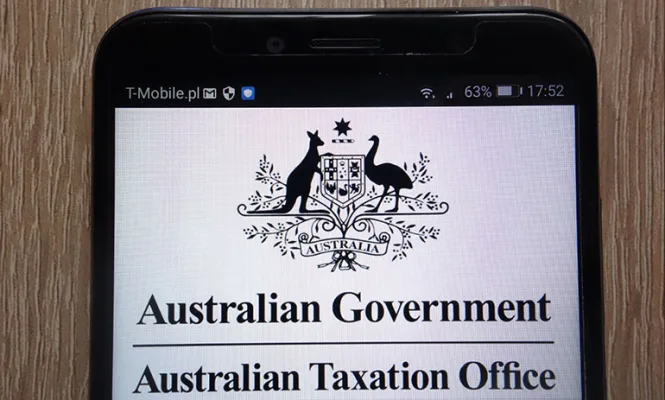Most people don’t think about tax time until the Easter bunny has hopped away others until the calendar has clicked over 1st of July and some only when the dreaded deadline looms. But that doesn’t have to be you. Why not make this year the year you lodge on time and receive your possible refund sooner.
Tax refunds are a great way for Australians to get back the extra money they paid in taxes during the year. With the correct knowledge of income tax laws, and a few helpful tips, filing your taxes can be an easy process that puts some extra money back in your pocket.
For those who are unfamiliar with Australian tax law, understanding how income tax works can seem daunting. To maximise your refund this year there are 5 things you could do today that could make the process of filing your tax return easier, faster and how to maximize your potential refund amount. To help you stay organised and make sure your taxes are filed correctly, here are some tips for being ready for tax time this year.
- Know what is relevant.
When it comes to income, allowances and expenses; its important you know what you can claim. Common allowable items include charitable donations, job-related travel, home office supplies as well as study expenses. Another thing taxpayers need to consider when claiming their taxes are any losses incurred due to investments or other business activities; these losses may also be deducted from your taxable income.
The ATO have a range of tailored guides that outline common work-related expenses for your occupation. Better still, our staff at Impact Taxation can create a strategy specifically for you to avoid missing deductions.
Organising your paperwork ahead of time is essential for ensuring you make the most of any potential deductions or credits available, maximising your refund. Start by gathering all relevant documents such as pay slips, bank statements and receipts for any expenses that may be deductible. It’s also important to check if you have received any benefits or other payments that need to be declared on the return.
Make sure you keep an eye out for tax forms from employers, banks, funds or government agencies including Centrelink, Medicare and the ATO which provide necessary information that must be included in the return.
- Keep detailed records.
Electronic or paper – you need to be able to prove any purchases you plan on claiming. Don’t leave your hunt for receipts till the last minute.
When it comes to filing taxes, keeping detailed records of receipts and purchases can be a huge help. It is important for individuals to track all their income sources and expenses throughout the year. Knowing exact details about what was bought, when it was bought, and how much it cost allows taxpayers to take full advantage of deductions that are available to them.
Having detailed records of your tax activity makes it easier for you to verify information when needed by the ATO. This includes reports on contributions made, donations made, business expenses incurred, etc. Keeping accurate records also gives you peace-of-mind knowing that you have kept track of all your finances properly in case you are ever audited.
If you don’t already have a filing system or plan – get started now.
- Logbooks
Many people miss out on claiming work-related expenses every year simply by not having recorded the information. For instance, to claim car deductions you need to either keep a record of kilometres travelled or a logbook which covers a minimum of 12 continuous weeks. A coincidence this year that Easter is 12 weeks from June 30, we think not. Logbooks are valid for five years but if yours is out-of-date or non-existent the time to start is now.
For those people still working from home, it is important to know the method and rates have changed for the 2022-23 tax year. Some records are required for the entire year, others for a 4 week period so be sure to check which method is right for you.
- Contribution to super
Australians are increasingly turning to superannuation contributions to secure their financial future. Contributing to your own super is a great way of saving for retirement and taking advantage of the tax benefits that come with it. With Australia’s ageing population and longer life expectancy, having a strong plan in place for retirement is essential.
Making contributions to your own super can be done in a number of ways, such as salary sacrifice or making voluntary payments from your after-tax income. Salary sacrificing into your super usually means you divert some of your pre-tax salary into your fund before it’s taxed, allowing you to access the taxation benefits associated with super contributions while still contributing towards your retirement savings.
There may be deductions or government co-contributions available to you if you add to your own super before the end of the tax year. It can be different for everyone and confusing for most, so make sure you give Impact Taxation a call to chat about the best option for you.
- Ask for help
Which leads us perfectly to the 5th way to maximise your tax refund– us! Impact Taxation can save you time, stress and even buy you an extension on the usual October 31 deadline. Our team are experts at maximising your refund while giving you on-going support and advice.
Tax season can be stressful for everyone, but it does not have to be. Asking for help with your tax questions and filings can make the process much easier and ensure you get the most out of your return. No matter where you choose to look for help, it is important to ask questions if you do not understand something about your tax situation.
In conclusion, the process of tax refund in Australia is straightforward and relatively easy for those who are familiar with the system. If you are not quite sure it pays to seek out professional help from a qualified accountant or tax agent.
With good preparation and knowledge, you can ensure you get the most out of your refunds.
Contact us today to book an appointment 02 87641596.






